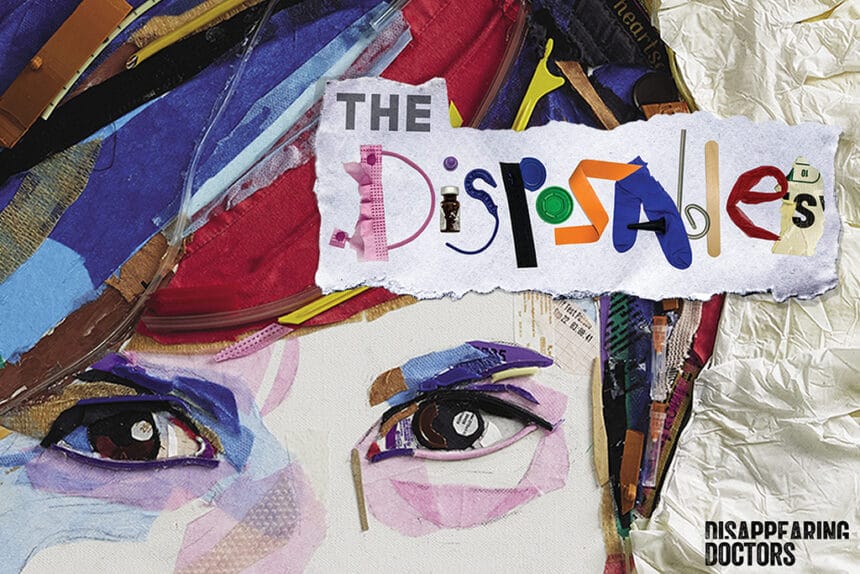Dr. Ryan Fryman was always on call. Twenty-four hours a day, for months on end. The medical center where he worked had decreased its staff from five doctors to two. Still, he cared deeply about the people he served. “If we aren’t going to do it, what happens to them?”
On March 8, 2023, Ryan took his own life.
In the words of his widow, Sarah: “It makes me sad to know that someone who helped save so many couldn’t save himself.”
Ryan’s story is not an isolated incident. His case is one of hundreds every year that we rarely hear about. It represents the unreasonable pressure doctors are under and the lack of support they receive.
Let’s be clear: This is a societal failure, not personal vulnerability. The Centers for Disease Control and Prevention has sounded the alarm. A mental health crisis has been declared among health workers. While overall suicide rates in the U.S. in 2022 climbed to the highest point in more than 80 years, the rates doubled for doctors.
The challenges faced by doctors are multifaceted and deeply rooted, and can be hard to appreciate for those not in the trenches. From grueling schedules that would violate labor laws in any other field to an alarming rise in violence targeting healthcare professionals, we are witnessing an unprecedented crisis unfold.
Approximately 50% of surgeons and specialists work more than 80 hours a week. About half work consecutive shifts of more than 30 continuous hours. Today, approximately 75% of all workplace assaults occur in the healthcare sector. The result? Doctors are becoming patients in their own emergency rooms.
Lawyers, investment bankers and, yes, advertising executives also work long hours. But when we need help, we can readily access it. Doctors, on the other hand, can lose their livelihoods for speaking up.
Invasive licensure questions from hospitals and medical boards create a culture of silence that runs deep. The pervasive fear of losing everything—their license, their insurance, even their practice—stops many from speaking up about their struggles with mental health. Inflated expectations from family, friends, and peers leave doctors feeling guilty, ashamed and isolated, and with nowhere to turn.
When tragedy inevitably strikes, it’s often swept under the rug and not discussed. The memories of these lost lives are hidden—discarded, even.
Last year, as the national emergency increased in urgency, Disappearing Doctors, a global coalition led by FCB Health New York, launched the initiative “The Disposables” to affirm one simple truth: That while so many things in healthcare are designed to be disposable, doctors cannot be one of them.
To create the work, we collaborated closely with the families of those lost, building their stories and insights into the very fabric of the initiative. This problem—so massive, so entrenched—can feel paralyzing. We helped them channel grief into action.
The result is meticulously handcrafted, sculptural portraits of doctors who have died by suicide. Composed by artist Jeremy Rosario, the works are made of donated medical materials sourced from families, colleagues and communities.
Every item has a story. Every person who contributed played a part.
“The Disposables” provides an opportunity to not only memorialize these people but also spark an urgently needed conversation. There is so much grief that has been deprioritized. Doctors need the space to mourn. They need to know that that’s okay. Our partnerships with organizations like Sermo, the Dr. Lorna Breen Heroes’ Foundation and the Ohio State Medical Association provide resources and safe spaces where doctors can share their experiences and support each other.
As marketers, we ask doctors to do things all the time. But when was the last time you simply asked a doctor how they were doing?
The tragic loss of these talented and compassionate professionals cannot be cast aside. It is time to recognize the gravity of the situation and confront the systemic issues contributing to this crisis.
It’s time to center doctors’ voices and prioritize their well-being in everything that we do. It’s time to propel forward the necessary changes needed to fix these broken systems. Our responsibility is to stand alongside those who dedicate their lives to our well-being and to ensure they receive the care and support they need.
Sarah feels some small measure of solace in knowing that Ryan’s story has resonated with so many people and served as a catalyst for change.
“He valued his community above all,” she says, “I just hope his story can help others,”
For all our sakes, let’s build a healthcare system that protects the well-being of those who dedicate their lives to healing others.
To learn more, please visit www.disappearingdoctors.com
Justin Kovarsy is creative director of FCB Health New York







